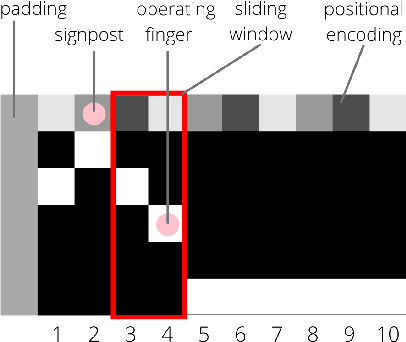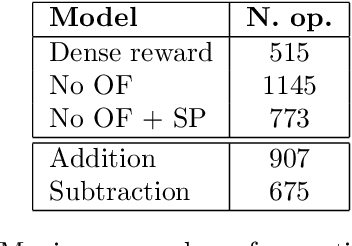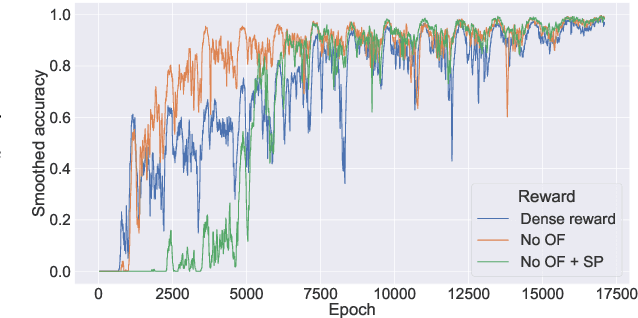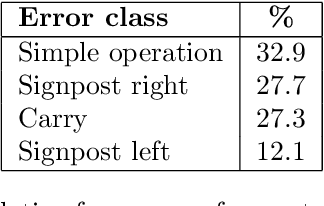Ling Xuan Chen
Learning to solve arithmetic problems with a virtual abacus
Jan 17, 2023



Abstract:Acquiring mathematical skills is considered a key challenge for modern Artificial Intelligence systems. Inspired by the way humans discover numerical knowledge, here we introduce a deep reinforcement learning framework that allows to simulate how cognitive agents could gradually learn to solve arithmetic problems by interacting with a virtual abacus. The proposed model successfully learn to perform multi-digit additions and subtractions, achieving an error rate below 1% even when operands are much longer than those observed during training. We also compare the performance of learning agents receiving a different amount of explicit supervision, and we analyze the most common error patterns to better understand the limitations and biases resulting from our design choices.
 Add to Chrome
Add to Chrome Add to Firefox
Add to Firefox Add to Edge
Add to Edge